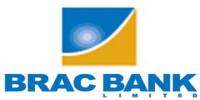The Growing Concern of Customer Due Diligence In Line With Citibank N.A
Citigroup is one of the preeminent global financial services company with some 200 million customer accounts in more than 140 countries. It provides consumers, corporations, governments and institutions with a broad range of financial products and services, including consumer banking and credit, corporate and investment banking, insurance, securities brokerage, and asset management.
The company employs approximately 260,000 staff around the world. The company offers a wide range of financial services to both consumers and businesses around the world. Retail banking operations include Citibank, which conducts business internationally with more than 1,700 branches and nearly 5,200 ATMs. Citigroup is the largest issuer of credit cards in the world.
Citigroup Inc. (Citigroup) is a global diversified financial services holding company. Citigroup businesses provide consumers, corporations, governments and institutions with a range of financial products and services. Citigroup operates two primary business segments: Citicorp, consisting of its Regional Consumer Banking (RCB) and Institutional Clients Group (ICG), and Citi Holdings, consisting of its Brokerage and Asset Management (BAM), Local Consumer Lending (LCL), and Special Asset Pool (SAP)
CITICORPORATION AND TRVELERS GROUP MERGER:
Citigroup was formed on October 9, 1998, following the $140 billion merger of Citicorp and HTravelers GroupH to create the world’s largest financial services organization. On April 6, 1998, the merger between Citicorp and Travelers Group was announced to the world, creating a $140 billion firm with assets of almost $700 billion. The deal would enable Travelers to market mutual funds and insurance to Citicorp’s retail customers while giving the banking division‟s access to an expanded client base of investors and insurance buyers. While the new company maintained Citicorp’s “Citi” brand in its name, it adopted Travelers group‟s group and Travelers distinctive “red umbrella” as the new corporate logo.
ABOUT CITIBANK, N.A. BANGLADESH:
Citibank N.A., a foreign private bank commenced its banking operations on 24th June 1995 after obtaining license from Bangladesh Bank in January 1995. Although the bank already had a foreign representative office here in Bangladesh back in 1987 but it launched its first full-service branch Dhaka in 1995. The present branch of the bank is the upgraded and transformed shape of the representative office.
Since 1987, Citi’s operations encompass primarily on Corporate and commercial banking services under the Institutional Clients Group (ICG). They provide a comprehensive range of financial services including treasury management, transaction services, foreign exchange and structured finance to corporate clients, governments and financial institutions. The bank has been offering its customers the highest standard of financial services backed by sophisticated technology and innovative product solutions. The bank also provides remittance services to the expatriate community all across the world and largely in the Middle East. It is the sole shareholder of Citibank, N.A. and its head office in New York governs the businesses of its Bangladesh branch. The bank commenced business in Bangladesh with a paid up capital of Tk204 million and total assets of Tk809 million.
Departments of the Bank & Products
Corporate & Investment Banking
The bank provides strategic and financial advisory services including corporate finance, syndicated loans, project finance, working capital finance, trade finance, cash management services etc.
Securities and Fund Services(SFS)
The bank covers issuer services (Agency and Trust) for structured transactions i.e. merger, acquisition, syndication. SFS offers direct custody & clearing service and investor services (Global custody) to institutional investors only through Citi‟s global network.
Treasury and Trade Solutions(TTS)
The bank offers treasury products to the customers such as ready and spot rate, forward rates, currency swaps, purchase/sale of government treasury bills and bonds both locally and globally.
Financial Institutions(FI)
This department caters for the need of various banks and non-bank financial institutions as well as NGO‟s, not for profit organizations and diplomatic missions.
Other Departments
There are also four other departments that can be termed as support and these are Operations, Credit Administration, Financial Control and Human Resource, Fixed Income Currency & commodity.
PROJECT PART
In response to the growing concern about money laundering and terrorist activities, security custodian service in Bangladesh is regulated efficiently by Bangladesh Bank. The United Nations (UN) was the first international organization to undertake significant actions to fight against money laundering. In line with the international initiatives and standards, Bangladesh has also enacted Money Laundering Prevention Act (MLPA), 2012 and Anti Terrorism Act (ATA), 2012.
According to financial dictionary, a financial institution that holds and manages a client‟s securities or other assets on his/her behalf is called as security custodian. According to Securities and Exchange Commission (Security Custodian Service Rule 2003), “Security custodian” will mean any person who has received a Certificate of Registration for providing security custodial service under the given rules. However, any person who has entered into a contract with security custodian is known as “Subscriber”.
Citibank N.A. has core expertise in the field of Global custody solution. Citibank N.A. Bangladesh provides security custodial services to Non-resident customers who are also known as foreign institutional investors (FII). The bank obtained its custody license from Securities and Exchange Commission (SEC) on December 14, 2008.
SECURITY CUSTODIAL SERVICES
As a security custodian, Citibank N.A. incorporates the following services thereto-
1) maintaining safe custody of subscriber‟s security
2) maintaining and operating the account of the subscriber‟s security and fund
3) collecting, keeping accounts of , and informing subscriber of any earnings, income, profit or claim relevant to security
4) collecting, keeping accounts of, and informing subscriber with any published or public information that is relevant to security.
As mentioned earlier, the bank provides security custodial services to Non-resident customers who are also known as foreign institutional investors (FII). Such customers have to maintain at least three accounts with or through the bank. Those are:
- Non- Resident Investor‟s Taka Account(NITA) maintained by the Bank
- Securities Account maintained by the Bank as a Custodian
- Beneficial Owner‟s (BO) account with Central Depository Bangladesh Limited (CDBL) where the account is controlled by the bank as a Depository Participant (DP).
For maintain this accounts, Global Custodial Services of Citibank Group introduces foreign institutional investors (FII) to various sub-custodians in different countries. Citibank N.A. Bangladesh acts as a sub-custodian to them.
As a security custodian, Citibank N.A. has to maintain customer due diligence (CDD) or Know Your Customer (KYC) procedure for NITA, security account and BO account in order to comply with Global Window Custodian and Bangladesh Bank regulation.
CUSTOMER DUE DILIGENCE (CDD)
Due Diligence (DD) refers to investigation of a business or person prior to signing a contract with a certain standard of care.
Customer Due Diligence provides complete lifecycle assessment and re-assessment of customer risk as part of know your customer (KYC) that allows bank to better identify, manage, and mitigate customer-related risks.
According to the Money Laundering Prevention Act (MLPA) 2012, CDD means-
- identifying the client and verifying their identity on the basis of documents, data or information obtained from a reliable and independent source
- identifying, where there is a beneficial owner who is not the client and verifying their identity
- measuring risk-sensitivity of clients based on the verified information
PURPOSE OF CUSTOMER DUE DILIGENCE
Customer due diligence (CDD) is required by the Money Laundering Prevention Act (MLPA), 2012 because one can better identify suspicious transactions if you know your customer and understand the reasoning behind the instructions they give you. The purpose of it is given below:
- Meet requirements across lines of businesses
- Increase efficiency and effectiveness of AML programs
- Provide business value with customer centric approach
WHEN TO CONDUCT CUSTOMER DUE DILIGENCE
To protect financial institutions from risks of money laundering and terrorist financing by customers willful or unwilling activities, Citibank N.A. conducts customer due diligence(CDD) at different stages according to the Money Laundering Prevention Act (MLPA), 2012, such as:
- while establishing a business relationship with customers
- carrying out an occasional transaction
- while conducting financial transaction with the existing customers
- bank suspect money laundering or terrorist financing
- bank doubt the veracity or adequacy of documents, data or information previously obtained for the purpose of CDD
The distinction between occasional transactions and long-lasting business relationships is relevant to the timing of CDD and the storage of records. In addition to that, it is important to have clear idea about money laundering or terrorist financing.
For that reason, the definition is given below:
MONEY LAUNDERING AND TERRORIST FINANCING
The Financial Action Task Force (FATF), which is recognized as the international standard setter for anti-money laundering (AML) efforts, defines the term ―money laundering as ―
“The processing of criminal proceeds to disguise their illegal origin in order to legitimize the ill-gotten gains of crime”
Money Laundering is also defined in Section 2 (v) of the Money Laundering Prevention Act
2012 as follows:
“Money laundering” means –
Knowingly moving, converting, or transferring proceeds of crime or property involved in an offence for the following purposes:-
- Concealing or disguising the illicit nature, source, location, ownership or control of the
proceeds of crime; or
- Assisting any person involved in the commission of the predicate offence to evade the legal consequences of such offence
Terrorist financing can be simply defined as financial support, in any form, of terrorism or of those who encourage, plan, or engage in terrorism.
KNOW YOUR CUSTOMER PROGRAM
The adoption of effective Know Your Customer (KYC) program is an essential part of Citibank N.A.’s risk management policies such customer due diligence. Having sufficiently verified/ corrected information about customers ―Knowing Your Customer‖ (KYC) – and making use of that information underpins all AML efforts, and is the most effective defense against being used to launder the proceeds of crime.
Know Your Customer (KYC) means knowing detailed information about the client‟s risk tolerance, investment knowledge and financial position.
Citibank N.A. believes that sound KYC Policies and Procedures not only contribute to the financial bank’s overall safety and soundness, they also protect the integrity of its system by reducing money laundering, terrorist financing and other related offences.
Nature of Customer‟s Business:
When a business relationship is being established, the nature of the business to be identified by Citibank works as the first step. Judging whether a transaction is or is not suspicious, Citibank N.A. tries to have a clear understanding of the business carried out by their customers.
Identifying Real Person
In next step, Citibank N.A. identifies that it is dealing with a real person (natural, corporate or legal), and verifies the identity of persons who are authorized to operate the account, or transact business for the customer. Whenever possible, the prospective customer can be interviewed personally. This helps safeguarding against opening of fictitious account.
Document is not enough
No single piece of identification can be fully guaranteed as genuine or sufficient to establish identity and for that verification will generally be a cumulative process. Collection of document is not enough for KYC, identification is most important.
KEY COMPONENTS OF KYC PROGRAM
In the process of designing the KYC program, Citibank N.A. contains certain key elements which include:
1) Customer acceptance policy
2) Customer identification
3) On-going monitoring of high risk accounts
4) Identification of suspicious transactions
CUSTOMER ACCEPTANCE POLICY
Before accepting a customer, it is important to define a customer in the eye of Bangladesh Bank.
Who is a Customer
For the purpose of KYC Procedure, a “Customer” is defined in AML Circular No. 24 dated 03/03/2010, as:
- any person or institution maintaining an account of any type with a bank or financial institution or having banking related business;
- the person or institution as true beneficial owner in whose favour the account is operated;
- the trustee, intermediary or true beneficial owner of the transaction of the accounts operated by the trust and professional intermediaries (such as lawyer/law firm, chartered accountant, etc) under the existing legal infrastructure
In preparing customer acceptance policies, factors such as customer‟s background, country of origin, public or high profile position, linked accounts, business activities or other risk indicators should be considered. Citibank N.A. doesn‟t open accounts in anonymous or fictitious name. The bank also does necessary checks before opening a new account to ensure that the identity of the customer does not match with any person with known criminal background or with banned entities such as individual terrorists or terrorist organizations etc.
CUSTOMER IDENTIFICATION
Customer identification is an essential element of KYC standards. The principal requirement is to look behind a corporate entity to identify those who have ultimate control over the business and the company‟s assets, with particular attention being paid to any shareholders or others who exercise a significant influence over the affairs of the company.
What Constitutes a Customer‟s Identity
Identity generally means a set of attributes which uniquely define a natural or legal person. A customer can be corporate body, partnership, agency & trust etc. How to identify the attributes of a customer is given below.
CORPORATE BODIES AND OTHER ENTITIES
Because of the difficulties of identifying beneficial ownership, and the possible complexity of organization and structures, corporate entities and trusts are the most likely vehicles to be used for money laundering. Citibank N.A. make enquiries to confirm that the company exists for a legitimate trading or economic purpose, and that it is not merely a ― “brass plate company” where the controlling principals cannot be identified.
The following documents are normally obtained by Citibank N.A. from companies:
- Account Opening Form: Name of Account, type of account, currency etc. are included in the form.
- Transaction Profile: Transaction Profile (TP) is an important document for monitoring transactions and recognizing suspicious transactions. The main features of the form for both deposit and withdrawal would be:
– Various types of transactions (i.e. nature of transactions)
– No. of transactions (monthly)
– Maximum size (per transaction)
– Total value (monthly)
- Personal Information Form (PIF): Father‟s Name, Date of Birth, Nationality etc. are included in the form.
- Certificate of Incorporation: Certified copy of Certificate of Incorporation with details of the registered office and place of business is collected.
- Memorandum: Certified copy of the Memorandum is collected.
- Articles of Association: Certified copy of Articles of Association is collected.
- Board of Resolution: Copy of the board resolution to open the account relationship and the empowering authority for those who will operate any accounts is collected.
- Ultimate Beneficial Ownership Declaration Form (UBODF): Satisfactory evidence of the identity of each of the principal beneficial owners being any person holding 20% interest or more or with principal control over the company„s assets and any person (or persons) on whose instructions the signatories on the account are to act or may act where such persons are not full time employees, officers or directors of the company is collected.
- Financial Performance: Explanation of the nature of the applicant’s business, the reason for the relationship being established, an indication of the expected turnover, the source of funds, and a copy of the last available financial statements where appropriate
- Bearer Shares Confirmation: Certified copy of Bearer Shares Confirmation is collected.
- Copies of the list/register of directors and Signatures
- Constitutive and Tax ID Documents
- KYC Assessment Form: After collecting information, the last thing to do is to build KYC Profile. KYC profile assesses the level of risk entitled with the customer. KYC profile gives the basic information about the customer like, Name, Address, Tel/Fax Numbers, line of business, Annual sales. If the customer is a Public Figure, the account will become automatically a High Risk Account.
The following persons (i.e. individuals or legal entities) must also be identified in line with this part of the notes:
- All of the directors who will be responsible for the operation of the account / transaction.
- All the authorized signatories for the account/transaction.
- All holders of powers of attorney to operate the account/transaction.
- The beneficial owner(s) of the company
- The majority shareholders of a private limited company.
Citibank N.A. obtains following information for the beneficial owners. Those are:
- Correct name and/or names used;
- Parent‟s names;
- date of birth;
- current and permanent address;
- details of occupation/employment and sources of wealth or income
- Contact information, such as – mobile/telephone no.
- The original, certified copy of the following Photo ID
- Birth Certificate
- National ID Card
- Current valid passport
- Valid driving license
- TIN/VAT Registration
- Employer provided ID Card, bearing the photograph and signature of the applicant
One or more of the following steps is recommended to verify addresses:
- Provision of a recent utility bill, tax assessment or bank statement containing details of the address
- checking the Voter lists
- checking the telephone directory
- visiting home/office
- sending thanks letter
Knowledge of both residence and nationality may also be necessary, in a non money-laundering context, to avoid breaches of UN or other international sanctions to which Bangladesh is a party. No face-to-face contact: Where there is no face-to-face contact, photographic identification would clearly be inappropriate procedures to identify and authenticate the customer. According to Citibank N.A., either documentary or electronic evidence has to be there to confirm address and personal identity.
Joint Accounts: In respect of joint accounts where the surname and/or address of the account holders differ, the name and address of all account holders, not only the first named, should normally be verified in accordance with the procedures of Citibank N.A.
Change in address or other details: Any subsequent change to the customer„s name, address, or employment details of which the bank becomes aware should be recorded as part of the Know Your Customer process. Generally this would be undertaken as part of good business practice and due diligence but also serves for money laundering prevention.
Introducer: To identify the customer and to verify his/her identity, an introducer may play an important role. An introduction from a respected customer, personally known to the management, or from a trusted member of staff, may assist the verification procedure to Citibank N.A. Companies Registered Abroad Particular care is exercised by Citibank N.A. when establishing business relationships with companies incorporated or registered abroad, or companies with no direct business link to Bangladesh. A visit to the place of business may also be made to confirm the true nature of the business.
Partnerships and Unincorporated Businesses
In the case of partnerships and other unincorporated businesses whose partners/directors are not known to the bank, the identity of all the partners or equivalent is to be verified in line with the requirements for personal customers.
KYC for Internet or Online Based Customer
Banking and investment business through the Internet add a new dimension to Financial Institutions’ activities. The unregulated nature of the Internet is attractive to criminals and has possibilities for money laundering and fraud. The development of technologies such as encryption, digital signatures, etc. can play a vital role in case of knowing a customer.
Timing and Duration of Verification
According to Citibank N.A., the best time to undertake verification is prior to entry into the account relationship. Verification of identity should, as soon as is reasonably practicable, be completed before any transaction is completed. Verification, once begun, should normally be pursued either to a satisfactory conclusion or to the point of refusal.
KNOW YOUR EMPLOYEE (KYE)
Institutions and businesses can learn at great expense that an insider can pose the same ML/TF threat as a customer. Citibank‟s Know Your Employee (KYE) program means that the bank has a program in place that allows it to understand an employee„s background, conflicts of interest and susceptibility to money laundering complicity. Policies, procedures, internal controls, job description, code of conduct/ethics, levels of authority, compliance with personnel laws and regulations, accountability, dual control, and other deterrents are firmly in place by the bank.
ENHANCED DUE DILIGENCE (EDD)
Enhanced due diligence (EDD) is a more detailed standard required for larger customers and transactions. Citibank N.A. focus more on simplified due diligence in Bangladesh and for that the depth of EDD is less known.
BENEFITS OF CUSTOMER DUE DILIGENCE
Customer Due Diligence solution meets the needs of customer on boarding and ongoing due diligence, enabling an automated, systematic process for the entire customer lifecycle. Reduce Regulatory Risk CDD which is Integrated & risk-based screening approach eliminates subjective evaluation of customers, improves customer insight, and mitigates regulatory risk through automated, systematic and multi-factor customer assessment. It reduces the chance of money laundering and terrorist financing.
Increase Operational Efficiencies
Active management of suspicious activities, with automated processing of lower risk customers and guided processes and workflows to focus resources on high-risk customers, reduces manually intensive compliance steps and overall operational workload.
Ensure Consistency of Processes
Automated and centralized risk evaluation processes drive consistent decision making, increase operational transparency, and eliminate redundancy of multiple systems minimizing in consistencies in compliance processes across the enterprise.
RECOMMENDATION
- Financial Action Task Force (FATF) implements international standards on combating money laundering and the financing of terrorism & proliferation. The FATF Recommendations are recognized as the global anti-money laundering (AML) and counter-terrorist financing (CFT) standard. According to FATF, Financial institutions are required to apply enhanced due diligence measures to business relationships and transactions with natural and legal persons that has high risk scenario. According to Bangladesh Bank regulation, Citibank N.A. focus more on simplified customer due diligence. In this case, enhanced due diligence can be focused more than simplified customer due diligence.
- In addition, FATF recommended to conduct enhanced ongoing monitoring of the business relationship or enhanced due diligence for politically exposed persons (PEP). PEP can be a domestic PEP or a prominent person entitled with an international organization. According to FATF, enhanced due diligence can be conducted for politically exposed persons (PEP) in Citibank N.A.
CONCLUSION
In Conclusion, It can be said that customer due diligence plays a vital role in case of preventing money laundering, terrorist financing and so on. Citibank N.A. maintains simplified customer due diligence across Bangladesh according to Bangladesh Bank regulation. It is an automated, systematic process for the entire customer lifecycle that reduce regulatory risk, increase operational efficiencies, and ensure consistency of processes in Citibank N.A. It is indeed a growing concern not only in Bangladesh but also in the whole world.
















